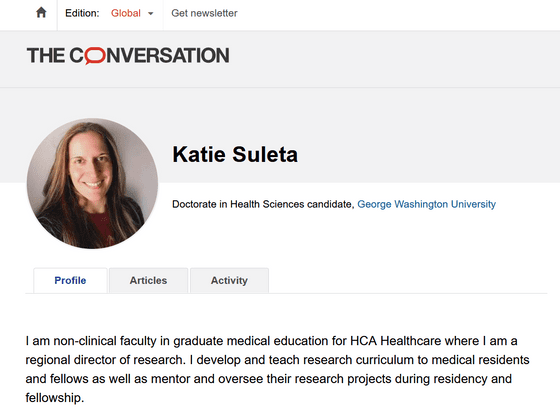What are the '3 lies' the supplement industry uses to deceive consumers?

While
A natural deception: 3 marketing myths the supplement industry wants you to swallow
https://theconversation.com/a-natural-deception-3-marketing-myths-the-supplement-industry-wants-you-to-swallow-226304
According to Katie Sleta, a non-clinical instructor in the medical education program at HCA Healthcare, a major American healthcare service provider, a 2023 survey revealed that 74% of Americans take nutritional supplements such as vitamins and prebiotics.
In submitting this article to The Conversation, Sreta declares that he 'does not work for, consult, own shares in, or receive funding from any company or organization that may benefit from this paper.'

Although supplements are substances that can have a significant impact on health, they are not regulated like drugs and are legally considered to be foods. Therefore, the Food and Drug Administration (FDA), the US regulatory authority, has essentially thrown in the towel, stating that 'the FDA does not have the authority to approve dietary supplements before they are sold, and companies can sell supplements without going through any approval process or providing evidence of their safety.'
As a research professor who has observed the supplement industry for many years, Sreta has noticed that there are three main methods used by the supplement industry in its marketing:
◆1: The fallacy of appealing to nature
This technique takes advantage of the '

To show how uncritically natural things are accepted, Sreta uses the example of vitamin C. When people hear 'vitamin C,' they tend to think of fruits such as oranges and its role in preventing infectious diseases. On the other hand, when people hear 'flu vaccinations,' they think of injections in hospitals and vials lined up on the production line of pharmaceutical factories.
However, while vaccines have been clinically proven to prevent infection,
Supplement company websites and advertisements often use words like 'pure' and 'natural,' but Sreta asserts, 'Let me be clear: 'natural' and 'better' are not the same thing.'
◆2: The myth that 'the more of a good thing, the better'
Taking advantage of the appeal of natural ingredients, the image that 'if it's natural, it must be good, and if it's good, more of it must be better' is sometimes sold.
But in reality, the human body tightly regulates the vitamins and minerals we ingest, so except in rare cases such as deficiencies, taking large amounts of a particular vitamin or mineral through supplements doesn't necessarily mean it's good for you. This is why skeptics of supplements often argue that you're just paying a lot of money for nutritious pee.

Sreta also cites vitamin C here. Many vitamin C supplements are advertised with prominent labels such as '1000mg of vitamin C'. However, Sreta says that an adult needs only about 75-120mg of vitamin C per day. Some vitamin D supplements have a dosage of 5000 IU (international units), but the National Institutes of Health
◆3: Action Bias
' Action bias ' is the bias that makes you think that doing something is better than doing nothing, or that you have done something good by taking action. The supplement industry exploits this bias to make you think that taking supplements is better than taking nothing at all.
However, as mentioned above, supplements can contain many times the recommended daily intake and in some cases can be useless or even harmful.
For example, taking too much vitamin C can cause diarrhea, nausea, and stomach cramps, while taking too much vitamin D can cause nausea, vomiting, and kidney stones.

Some of them may also interact with prescription drugs, making them less effective or worsening their side effects. For example, St. John's Wort , an herb used in traditional European medicine and also used as a supplement, is known to interact with contraceptives, immunosuppressants, statins , chemotherapy drugs, and other drugs.
For this reason, Sreta advises, 'Be wary of marketing claims like this - they're not always true, and there's no guarantee they will have any health benefits. If you're thinking of taking supplements, always consult with your doctor.'
Related Posts:
in Food, Posted by log1l_ks







